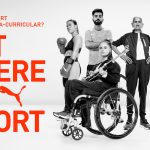More than 63% of students are unable to articulate what IR 4.0 entails – the same number of fresh graduates are likewise unable to do so
Some 30% of students feel completely unprepared to join an IR 4.0 workforce.
More than half of graduates surveyed believe organisations are not ready for a new generation workforce.
The Industrial Revolution 4.0 (IR 4.0) is set to transform the workplace from task-based characteristics to human-centred characteristics, powered by artificial intelligence.
An analysis by Bank Negara Malaysia reveals that Malaysia is classified as an adopter of IR 4.0 and while the nation’s digital transformation is leading in the region, Malaysia’s economy still lags behind notable forerunners such as Japan and Singapore.
The analysis also revealed that Malaysia must aspire to become a front-runner of digital innovation if she is to fully unlock economic benefits.
Over the last two years, the government and its agencies have been spearheading the need for digital transformation. In the last year alone, allocations of more than RM5 billion have been set aside to support the transition to Industry 4.0.
This includes: assistance to SMEs to carry out the National Policy on Industry 4.0 Readiness Assessment via the Malaysia Productivity Corporation;
the Industry Digitalisation Transformation Fund with a subsidized interest rate of 2% under Bank Pembangunan Malaysia Berhad to help accelerate the adoption of smart technology towards driving automation, robotics, and artificial intelligence in industries;
and the Malaysian Investment Development Authority providing matching grants through its High Impact Fund for IR 4.0 activities such as R&D, obtaining international certification and standards, modernizing facilities and licensing, or purchase of new or high technology.
Other incentives include an allocation of RM 1billion for the National Fibre Connectivity to enhance the country’s broadband infrastructure, and an allocation of RM10 million for e-Sports, a growing trend among younger generations that is leading to new careers.
In spite these significant incentives, Malaysia’s small and medium enterprises that make up a 38.3% share of Malaysia’s GDP continues to lag behind.
More than 1/3 of the allocated 500 spots for the Industry 4.0 Readiness Assessment remains unutilised. Moreover, digital adoption especially among SMEs is barely touching 20 per cent, and most manufacturing companies apply less than 50 per cent of automation.
Other organisations in Malaysia that have begun adopting digital development are still facing gaps in their digital strategy, either due to misalignment across the organisation or the lack of a clear road map on how to adopt digitalisation systematically.
While it is set to be an interesting time for Malaysian industries with room to grow for both adopters and those who have yet to start their digital journey, INTI International University & Colleges (INTI) and International Data Corporation (IDC), a global provider of market intelligence and advisory services on information technology, commissioned a landmark survey of more than 560 respondents.
Comprising students, graduates and parents, the survey aimed to uncover if talent are ready to be part of a digitally-evolving workforce.
Students, graduates and parents lack clarity about IR 4.0. While IR 4.0 has dominated news over the last three years, more than half (63%) of the students and graduates responding, respectively, were unable to articulate what IR 4.0 entails.
Surprisingly, more than half (54%) of the parents surveyed likewise lacked a clear definition and ability to discuss IR 4.0 and why it was relevant to organisational transformation.
This suggests that talent, both existing and future, are unable to appreciate the significance of digital transformation and how this will impact future jobs and competencies in a digitally enabled workforce.
It also suggests that while emphasis on STEM education is on the rise, students are unable to envision how their choice of education and career today may be impacted by digital change.
Students feel unprepared to join the IR 4.0 workforce. None of the students believe they are completely unprepared for an IR 4.0 enabled workplace. This included the technological skills needed to work alongside the innovative advancements taking place in today’s workplace.
Some 28% also cited that their academic experience at university was the only exposure they were receiving about IR 4.0, and that they had not undertaken any other training or work experiences to enhance their understanding. This reinforces concerns that most students have not gained exposure to IR 4.0 and may be too reliant on only their academic programmes to make them job-ready.
It also adds weight to universities to evaluate and assess how well their current programmes provide the training and real-world insights needed for graduates entering the future workplace, and what they need to do to scale up beyond theoretical and academic teaching.
Tertiary education still plays a significant part in preparing for careers, but may not be doing enough to prepare students for the workplace.
Drawing on students’ reliance on formal tertiary education, almost all parents (93%) found tertiary education to still be relevant for students’ future careers. However, while they still see value, almost 62% of parents felt current courses did not prepare students for IR 4.0, as academics could not keep pace with industry changes.
More than three quarters of students (78%) and graduates (79%) respectively agreed that tertiary education is still important, but added that its value was tied to the ability to negotiate better salaries when pursuing jobs.
These perspectives suggest that tertiary education is currently viewed as a tick box to employment, rather than a space for the development of competencies for the future workplace.
This concern was further reinforced with every group of respondents ranking academic training as not being applicable to the workplace among the top three challenges faced by graduates (58% of students, 48% of graduates, 53% of parents). Other challenges included being stereotyped negatively by senior colleagues, legacy structures, and a lack of digital literacy by top management teams.
In spite these challenges, students are not leveraging additional resources to prepare for the workplace.
Students today are predominantly from Generation Z and touted as true digital natives who were born with technology as part of their daily lives. Emphasising their digital savviness, the top three technologies students have already gained some experience in included IoT (47%), Cloud Computing (38%) and AI (34%).
In spite their access to technological resources, only 11.6% had leveraged additional courses on top of their existing academic programmes to develop their long term competitiveness. For the majority, time constraints and a lack of value were the reasons they had opted against pursuing additional certifications.
This perception appears as a mismatch to the expectations of industry which emphasises the development of added skills and training as part of consistent talent development. With new technologies on the rise and being introduced intro organisations, certifications lend to the growing skillsets needed to work alongside digital change.
All respondent groups (67% of students, 71% of graduates, 56% of parents) emphasised critical thinking as the most important skill needed in the workplace. Technological skills also ranked among the top 3 skills needed by students (41%) and graduates (42%), suggesting that younger generations recognise the need to operate new technologies in the workplace, if not necessarily trained or skilled to do so.
While younger generations may recognise the importance of technological skills, without a clear understanding of what IR 4.0 means, students and graduates will still need to broaden their present technological capabilities from personal use to workplace skills. This includes the ability to work with big data, machine to machine communication and the impact of technology across interdisciplinary functions within an organisation.

Salika Suksuwan, Executive Director, Human Capital, PwC Malaysia; Tan
Lin Nah, acting Chief Executive Officer, INTI International University &
Colleges, Amran Hassan, Head of Innovation, Maybank; and Wong Chan
Wai, Head of the Research Unit, & Development Department, Human
Resources Development Fund (HRDF) Malaysia pose for a group photo
Parents on the other hand ranked decision making among their top 3 skills (47%), which may be reflective of their longer working experiences and the value they place in making the right decisions with minimal negative consequences both professionally and personally.
Mixed perceptions towards industry’s willingness to adapt to a new generation of talent. Only slightly more than half of the students (52.7%) and parents (57.3%) surveyed believe that organisations are ready to adapt to a new generation of talent. This stems from the belief that today’s employers are looking to younger talents as technologically savvy employees who will help them in their digital transformation.
This raises more concerns as it suggests that while students are aware of the expectations employers have of them, they are not actively pursuing a better understanding of IR 4.0 or developing their competencies beyond their academic qualifications.
More than half (56.2%) of the graduate respondents, however, disagreed with the willingness of organisations to adapt to a new generation of talent, stating legacy issues and an unwillingness to adopt new processes as the key challenges faced in the workplace.
This speaks to the slow uptake of digital transformation among small and medium enterprises – suggesting that the development of talent not only comes from their own personal readiness, but also the willingness of future employers to leverage their capabilities in effecting digital change.
Tan Lin Nah, INTI’s acting Chief Executive Officer explains, “This study is unique in that speaks about talents’ perceptions of IR 4.0 rather than government and industry experts. The findings are a wakeup call that while technological change is taking shape in the country, young people are yet to keep up with its impact to their futures.
“As partners of industry, academia must accept that beyond academic excellence, we are also responsible in building future talent and ensuring positive employability outcomes. The findings lend a significant weight to the fact that both education and industry still have much to do in building our talent pipelines to be globally competitive in an IR 4.0 world,” she said.
Jensen Ooi, Research Manager for IDC Asia Pacific who presented the findings, shares “The lack of skilled resources has been listed as one the key challenges faced by Malaysian organizations in their workspace modernization efforts.
“As such, academic institutions play a key role in developing graduates who will be part of the workforce that will address this challenge. There needs to be more communication on what is IR 4.0 and its application in the near future beyond just the business leaders making the transformation decisions.
“In addition to clarity about what is expected in IR 4.0 driven economies, the teaching of technology skills should be given more prominence across all levels of education, in anticipation of future jobs.
“To help students bridge the gap with industry needs, more needs to be done to encourage and prep them to pursue in-demand certifications while completing their studies.
“Tertiary institutions also need to expand their industry collaboration ecosystem to keep the curricula relevant, enabling industry to co-curate programmes that include hybrid competencies with technological and professional skills,” he adds.
Further to the presentation of the whitepaper, the launch welcomed industry experts to weigh in on the findings of the survey and to hear their recommendations about preparing graduates for tomorrow’s digital future.
Besides Tan Lin Nah and Jensen Ooi, other panellists included Salika Suksuwan, Executive Director, Human Capital, PwC Malaysia; Amran Hassan, Head of Innovation, Maybank; and Wong Chan Wai, Head of the Research Unit, Research & Development Department, Human Resources Development Fund (HRDF) Malaysia.
Lin Nah advises, “With digitisation set to be the new enabler in global competition, this survey is a timely checkpoint on whether all contributors to digital progress are moving at the same pace. As builders of talent, INTI has already begun reinventing education to meet the rapidly evolving technological workplace.
“Through micro-credentialing that is incorporated into our business, IT and engineering programmes, students obtain additional certifications from technological leaders including IBM’s Innovation Centre for Education, Alibaba’s Global E-Commerce Talent programme and Glodon’s Building Information Modelling system, which strengthen students’ academic learning with industry-recognised certifications.
“These are coupled with boot camps and short courses led by the likes of Microsoft, Google, SAS, Oracle, and Jabil in developing the use of professional tools, building online brand presence, data analytics, cloud computing and robotic process automation which really build the technological skills needed by professionals in all sectors.
“Faculty also collaborate with industry directly, be it through employer projects, INTI’s Faculty Industry Attachment Programme – a two-week internship for lecturers to experience working in leading organisations – or our Industry Advisory Boards that bring faculty and industry together to evaluate curriculum and the inclusion of industry trends in learning.
“These measures are part of acknowledging that education must change to meet the needs of a new digital era and through this INTI continues to deliver on growing graduate outcomes year on year,” she concludes.
MARKETING Magazine is not responsible for the content of external sites.










